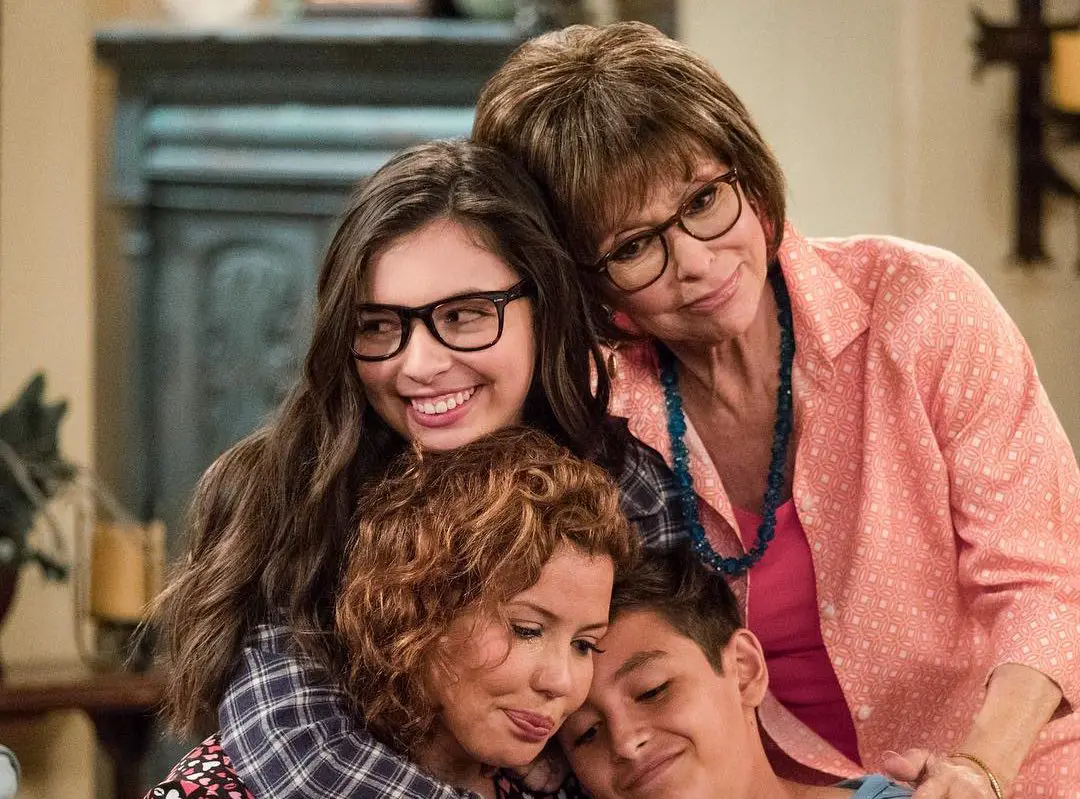The media mantra that’s entered every conversation for the last several years has been this: representation matters. From “Black Panther” to “Moana,” audiences have been clamoring for better representation for people of color, immigrants, the LGTBQ+ community and more. Netflix’s heart-warming “One Day at a Time” delivered just that before its cancellation in April 2019, which was met with fan outrage and the worldwide trending of #SaveODAAT on Twitter. The fans have been heard, and “One Day at a Time” was picked up for a fourth season by Pop TV.
The original “One Day at a Time” centered around single mom Ann Romano as she raises two teenage daughters, but the remake in question focuses on Penelope Alvarez and her Cuban American family.
At the series’s opening, Penelope is newly separated and seeking a divorce from her alcoholic husband, who suffers from PTSD, as she raises their children, Elena and Alex, with the help of her mother, Lydia, and the unasked-for help from the landlord, Schneider. Penelope, like her husband, is an Army veteran where she worked as combat nurse. It isn’t until after her military service and entrance into her current position as a nurse that she realizes she needs medication for depression.
https://www.instagram.com/p/BfO3PRUg_A2/?utm_source=ig_web_copy_link
One of the most alluring parts of the show is its portrayal of the Latino experience in the United States. Abuelita Lydia immigrated to the States from Cuba with her younger siblings under Operation Pedro Pan, where she eventually reunited with her love, Berto, whom she married and had two children with. “One Day at a Time” perfectly captures Lydia’s Cuban pride and how it mingles with her love for the United States, doing an excellent job exploring what this might mean for her children and grandchildren.
Penelope is connected with her Cuban roots. She speaks Spanish and appreciates every part of herself that’s Cuban, from her love of salsa to her fiery temperament, though her integration into American culture is not overlooked — she makes several references to the teenage romps that good, Cuban, Catholic Lydia never would’ve gotten into. Lydia’s grandson, Alex, also embraces his Cubanness: he speaks Spanish, has a close relationship with his grandma and even goes to church with her.
The daughter Elena, however, represents an often-overlooked part of the Latinx community. She’s white-passing, doesn’t speak Spanish, didn’t want her quinceañera and balks at displays of outright “Cubanidad,” calling her family “stereotypical” when they’re loud or unable to resist the rhythmic, throaty voice of the one and only Celia Cruz.
Elena is one of the most prominent mouthpieces in the show. Elena is “woke,” often seen taking up one cause or another or attempting to dismantle an institution for its injustice to some marginalized community. At the same time, she continually has to find her way back to her Cuban roots in an authentic way that doesn’t compromise the person she’s already become — most pointedly discussed when she is awarded a “diversity spot” in a youth writing competition.
Throughout the series, “One Day at a Time” tackles important social issues in a family friendly sitcom-true manner. In the classic couch-centered living room, Elena grapples with questioning her sexuality and what that means in her Latino family, specifically with her Catholic grandmother and her Cuban veteran father. In that same living room, Penelope and her almost ex-husband Victor fight about his alcoholism.
https://www.instagram.com/p/Bs6G1kMFFew/?utm_source=ig_web_copy_link
After lecturing Alex on his punching another kid, the family has a discussion on ethnicity and race in the current political climate. Sitting around the couch, the Alverez’s have a heated discussion about toxic masculinity, predatory behavior and forms of harassment where Elena admits to having been followed by a group of men while out with her significant other.
The adopted family member, Schneider, adds his eight-year sobriety chip to the Alvarez Family Museum, placed in the hallway off the living room, cementing his place with the Alvarez family.
It is clear why fans love “One Day at a Time” so much. With only a few major characters and 13 episodes a season, the show is willing and able to take on so many issues as topics of discussion. Penelope and even Lydia can give what a lot of people didn’t have growing up: open, honest, productive communication. So many of the social issues brought up in the show wind up as a topic of discussion at some point in the dialogue, all surrounding the Alvarez living room.
“One Day at a Time” took the laughingly cliché and typical living room couch set-up and made it a place to foster understanding, communication and acceptance of everyone. Lydia, a true Cuban Catholic woman who puts up pictures of the Pope around the house, works entirely through her life-long homophobia and learns to accept her lesbian granddaughter in seconds while sitting on that couch.
Members of the LGBTQ+ community often lose their relationships with family members after coming out, and most members of the Latinx community would agree that unafraid, open communication with family or acceptance of mental illness is a rarity; it most definitely is in my Latinx family.
Understanding and help is seldom given to addicts. “One Day at a Time” is a love letter to traditionally underrepresented people, underappreciated people, under-loved people, and it tells them, “You’re loved” and “You’re deserving of this level of love, understanding and acceptance.”
https://www.instagram.com/p/BeqnxnllrfE/?utm_source=ig_web_copy_link
The frequency and manner of communication among the members of the Alvarez family is sometimes corny and unrealistic, but for people who never knew that kind of welcoming embrace, they need the easy approval found in the arms of the Alverez’s.
The unabashed representation of and love for underrepresented communities is what gained the show a cult following that took to Twitter upon its cancellation, calling for the show’s renewal. The tag #SaveODAAT was trending worldwide for several hours, while Lin-Manuel Miranda joined in the fray to save the show.
Lin-Manuel Miranda was also instrumental in the renewal of “Brooklyn Nine-Nine” after Fox cancelled it. “Brooklyn Nine-Nine,” another show with a racially diverse cast and LGBTQ+ characters, was also shown major fan support after its cancellation, and it was picked up by NBC in about a day.
“One Day at a Time,” however, took a few months because of the nature of the contract with Netflix, which stated the creators couldn’t take the show to another streaming service for several years. The loophole is that the show has found its new home on cable network Pop TV. “One Day at a Time” is the first show to move from a streaming service to a network.
More and more, audiences are utilizing the internet to show big television and movie executives where their preferences lie. This time, the people demanded “One Day at a Time” be given the chance that the people it represents are seldom given, but they inarguably deserve.















